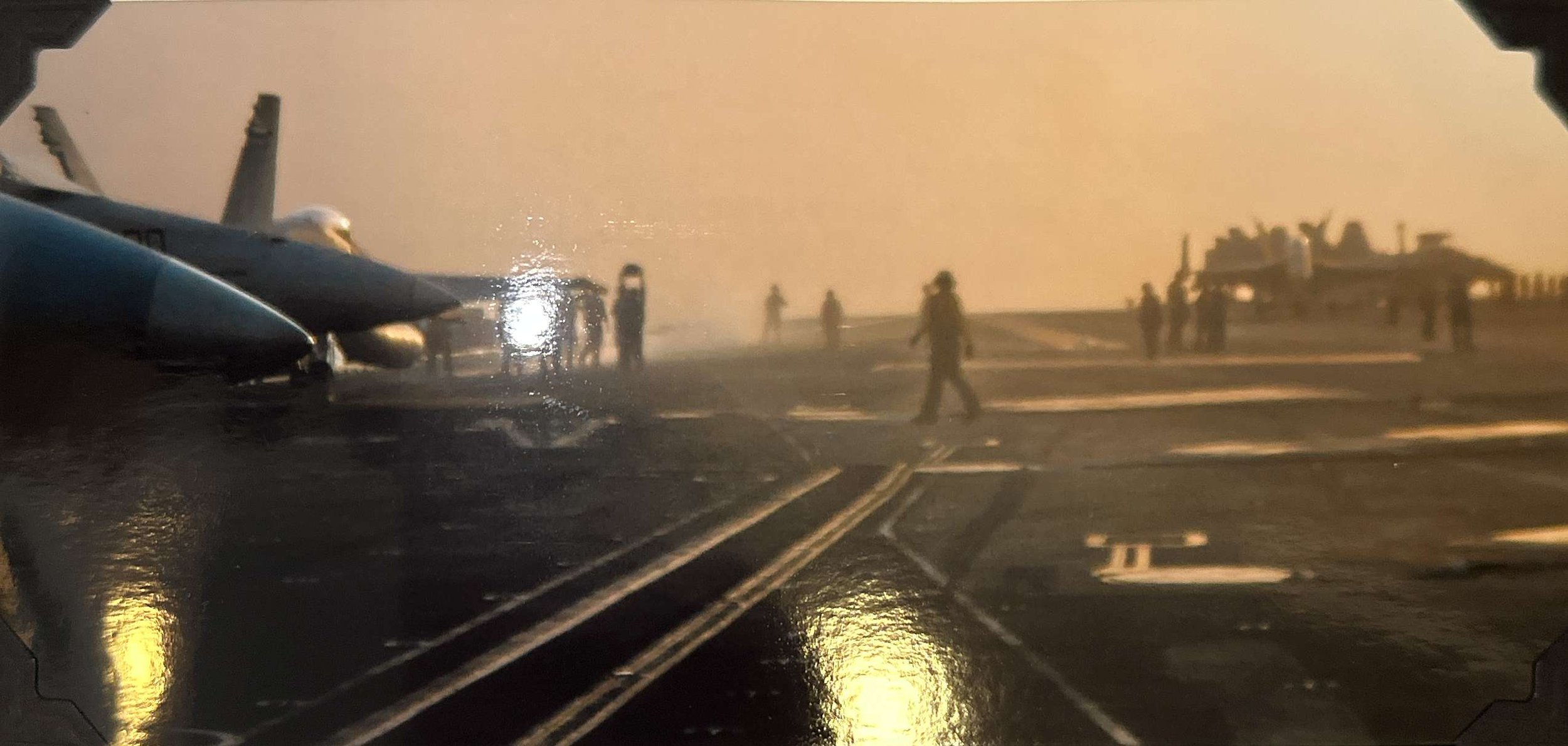Healing from a Military Divorce through Writing
My new book is coming out in January, and it’s dredging up all kinds of memories.
Seven years ago, I published my first book, a poetry collection called When the Men Go Off to War, with the Naval Institute Press – about my experiences as a fighter pilot’s spouse. A novel came next, and then, for years, nothing.
Why? I got divorced.
My husband and I met at 19 and got married at 25. We moved from the Florida panhandle to Missippippi to Virginia Beach to Washington DC. We had two daughters. We went through three deployments. When we were younger we used to joke about the military divorce statistics – after nine years of marriage, we became one of them.
Our baby daughter in the officer’s club at NAS Oceana.
There was no affair, nothing scandalous. The marriage just became too difficult. We argued. A lot of people ask me if we got divorced because of the military, and it would be easy to offer the “movie explanation” of a post-deployment divorce and blame it on PTSD or loneliness. After all, the military divorce rate is twice the national average. But the honest answer is that things just didn’t work. The deployments didn’t make it better, but they also weren’t responsible. I usually tell people that the military just amplifies the characteristics we already have – both good and bad.
Photo from deployment.
After the divorce, I became a single mother of a two-year-old and three-year-old. I wasn’t on Tricare anymore, so I gave up being a full-time writer and mother and got a full-time job in public relations. I moved from a four-bedroom house into a two-bedroom house. I stopped writing as much; all of my spare time went to being with my children.
My daughter in her flight jacket.
Divorce is hard, but divorcing from the military is harder. I miss the military – the camaraderie between spouses, the nights at the officer’s club on base, the dining outs, the balls, the homecomings, all the laughter. There was so much laughter in those years. People went through things together. No one made a lot of money, but no one was “better” or “better off” than anyone else; you knew exactly what everyone was making, and the only hierarchy was rank. Things are a lot murkier in the civilian world.
Posing under a jet with my girls.
I’ve been divorced for five years now, and my ex-husband and I are both remarried. I married a Marine veteran, who saw combat during one of the deadliest years in Iraq, and I think in a lot of ways we feel like although we didn’t know each other in our “old lives”, we feel like we can understand each other. We don’t have to pretend those years didn’t exist.
My third daughter was born last year.
Now my short story collection, Homefront, is about to be published by the University of Nevada Press, and it’s bringing back a lot of memories about those military years. They were some of my best, and in some ways, some of my worst. But I do know one thing – it was an awfully great adventure. And I’m so grateful for all of it.
Victoria Kelly’s book, Homefront, is available for pre-order. 10% of her profits will be donated to the Armed Services Arts Partnership.








